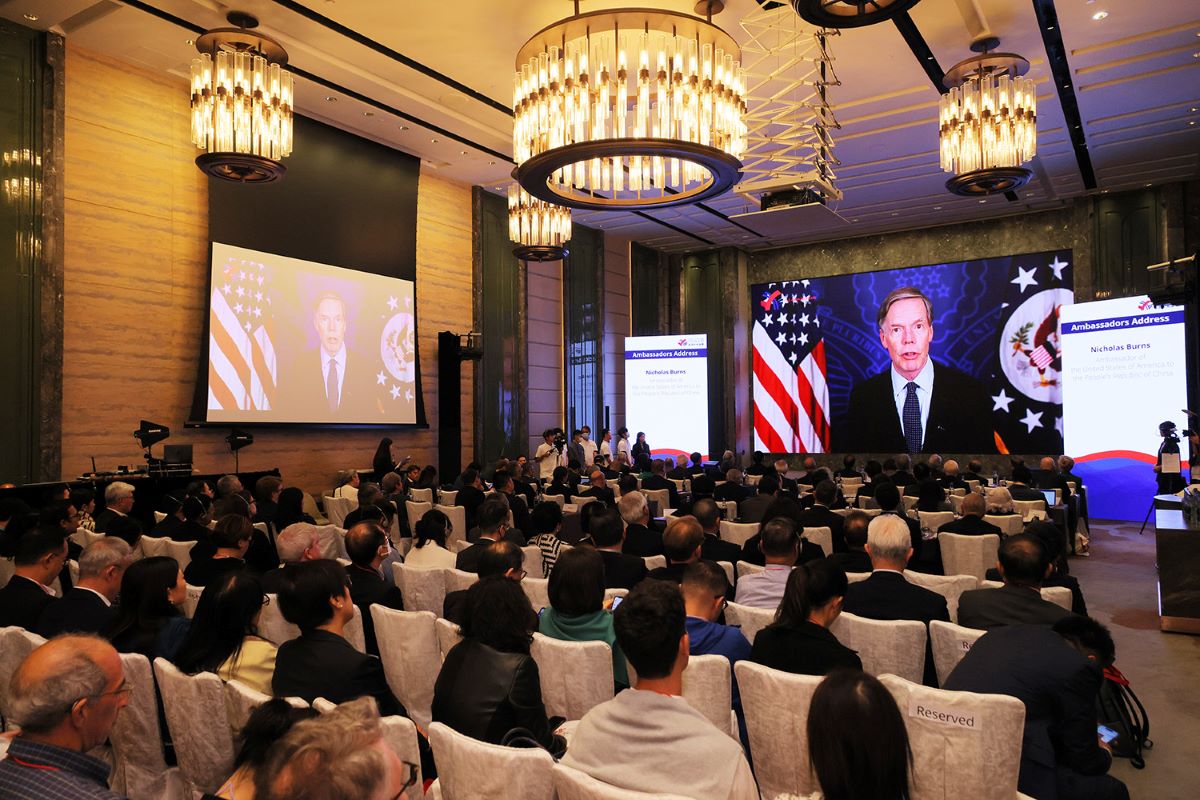
(Ambassador Nicholas Burns addresses the Hong Kong Forum on U.S.-China Relations on November 9, 2023. Photo: China-United States Exchange Foundation)
Last week, our annual Hong Kong Forum on U.S.-China Relations was opened by Ambassador Nicholas Burns and Ambassador Xie Feng in a notable expression of public unity—followed 24 hours later by the confirmation that President Joe Biden and President Xi Jinping would meet for the first time in a year. The China-United States Exchange Foundation (CUSEF) is proud to serve as a platform that encourages dialogue between both sides and supports the conditions needed for the two leaders to come together in California.
Thank you to everyone who participated in the Hong Kong Forum, and please don't forget to leave your comments in the Call to Action here. We want to learn and we want to improve.
There is a lot to say about the Xi-Biden meeting, and a lot to unpack. But here are three takeaways that are important, particularly in the context of the work we do at CUSEF, and how we can be effective going forward:
First, this is arguably the most substantive signal of improvement in the bilateral relationship since at least the pandemic—although the bar of expectation is very low. After a spate of high-level visits between Washington and Beijing, the Chinese leader traveled with one clear message: "China is ready to be a partner and friend of the United States," adding that his country "never bets against" America, and that he expects the same in return. Importantly, President Biden confirmed that "we're back to direct, open, clear communications on a direct basis."
Second, amidst all the talk of decoupling, President Xi sounded a clear commitment to positive and consistent continuity. The door that opened in January 1979 "cannot be shut again." While that could sound like words of goodwill uttered in the moment, he elaborated: "The tree of our peoples' friendship has grown tall and strong and it can surely withstand the assault of any wind or storm." Before this year at least, the "wind" and "storm" have sometimes been gales and typhoons, so again we must take these words for the substance they convey.
Thirdly, I draw hope from the new momentum of increased exchanges overall: scheduled passenger flights will increase starting from early 2024, some military-to-military communications will be restored, and China is ready to invite some 50,000 students over the next five years. The last point in particular harks back to a conversation I had with President Jimmy Carter, who recalled being woken up at 4am by a phone call from Chinese leader Deng Xiaoping, just to say that he wanted more exchanges between students from their two countries.
People-to-people exchanges are more important than ever in an era where fear and suspicion have replaced trust and goodwill, especially in areas of traditional collaboration. But let's not forget that non-governmental contacts require nuance and purpose. As it did in 1979, the future of the U.S-China relationship is not going to be defined by factories or soybeans, but by people like you and me, and particularly our youth—such as the over 2,000 students CUSEF has brought on exchanges.
I would sound one note of caution: the U.S. and China cannot simply return to the memories of the past. They must be bold and courageous by embracing the issues that will shape tomorrow's world, and acting in a way that actually contributes to a relationship of trust and openness. Can the new momentum continue? Will they concede on key issues? And how will relations be impacted by the U.S. election cycle getting underway? A new opportunity is here: now let's do it justice.
Thanks for reading and please share these thoughts with your community.
![]()
James Chau
President
China-United States Exchange Foundation (CUSEF)
